The Religious Politics of Hellsing Ultimate
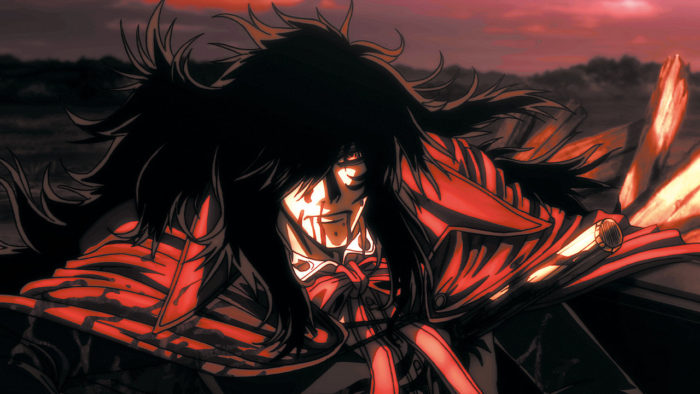
Hellsing Ultimate is Japan’s take on Bram Stoker’s Dracula. Set in London in the 90’s, the OVA series follows Abraham Van Helsing’s descendant, Sir Integra, and her vampire servant, Alucard, as they fight threats to the Hellsing Organization and England. The main villains are the Nazi group Millenium, led by the war-crazy Major. However, there is also a conflict between the Protestant Hellsings and Catholic Iscariot Organization.
Obviously, Hellsing Ultimate takes some liberties in portraying both the Catholics and Protestants. However, the OVA throws in enough references to religious history that make it somewhat accurate. It would probably be a good idea to go over the history of Protestantism in England.
Spoilers below.
Protestantism in England
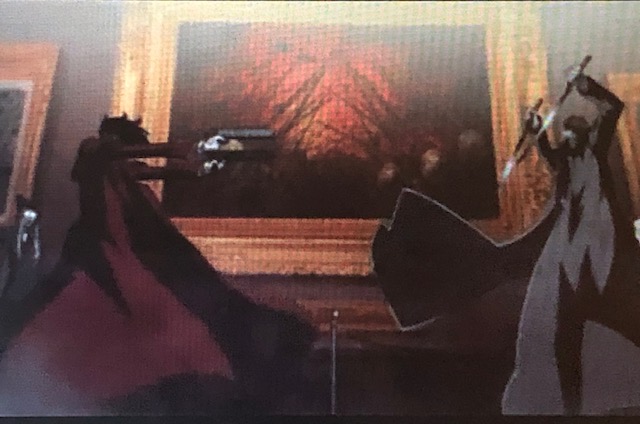
Hellsing Ultimate portrays the Catholics as incredibly hostile towards the Protestants. However, for much of England’s history, the roles were reversed. England remained part of the Catholic Church until 1534, after Pope Clement VII refused to grant Henry VIII an annulment for his first marriage. The infuriated king proclaimed the Act of Supremacy, making himself the Supreme Head of the Church of England. Church and government officials were ordered to take the Oath of Supremacy or face execution.
When Mary I ascended to the throne in 1553, she repealed the Act of Supremacy. Simultaneously, she gained a reputation (and the nickname “Bloody Mary”) for persecuting Protestants. Her pro-Catholic policies were reversed by Elizabeth I; under her rule, priests were hunted, Mass was banned, and people were tortured and killed. Situations worsened following the Gunpowder Plot, an assassination attempt on King James I in 1605 by several Catholics. The men were killed, and the Popish Recusants Act introduced another oath of allegiance, besides forbidding Catholics from holding positions as lawyers, physicians, and government trustees.
When Charles I became King, he was more lenient towards High Anglicans, ringing alarm bells for Protestants (especially Puritans). His preference for making decisions without consulting his subjects didn’t help matters. Things came to a head, culminating in the English Civil War (1642-51) between the “Roundheads” (Parliamentarians) and the “Cavaliers” (Royalists). Charles I was eventually captured, tried, and executed for high treason in 1649. He was succeeded by Oliver Cromwell, who was a dedicated Puritan and ruthless towards Catholics (more on him later). The British government gradually became more lenient towards non-Church of England Protestants, but Catholics were still under persecution until the Roman Catholic Relief Act in 1829.
So, the anti-Catholic sentiment held by Integra Hellsing and the anti-Protestant sentiment held by Anderson and Maxwell are not far off from what actually permeated the air in the 16th to 19th centuries, although it feels somewhat exaggerated for the 90’s.
Conflict in Ireland/Northern Ireland
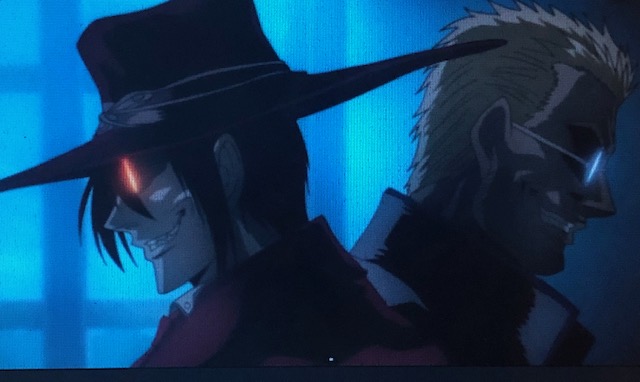
The first confrontation between Alucard and Father Anderson takes place in the fictional town of Badrick, Northern Ireland. It is a fitting setting for a clash between the vampire and paladin, as Northern Ireland (and Ireland) have both been the centres of religious conflict. Before discussing Northern Ireland specifically, it would be best to talk about Oliver Cromwell, as it was through him that Protestantism really took hold in Ireland (and since Alucard uses the Cromwell Invocation when he fights with his vampiric powers).
Oliver Cromwell ruled England, Scotland, and Ireland from 1653 to 1658. A strict Puritan, he instated laws prohibiting partying, brightly colored clothing, and even Christmas celebrations. Following England’s Civil War, Cromwell invaded Ireland in 1649 in order to settle the chaos there. The Irish Catholics, angered by attempts to impose Protestant laws on them (and English settlers arriving to claim their land), had been in a state of rebellion for eight years. About 3000 Protestants had been killed and many settlers had returned to England.
Cromwell’s campaign lasted from August 15, 1649 to May 26, 1650. Many towns and villages were seized by the English, and much of the land was later confiscated by the Act for the Settlement of Ireland (1562). Cromwell was particularly known for his cruelty on two separate occasions, during the Siege of Drogheda and his attack on Wexford. On both occasions, both soldiers and civilians were killed, some even after surrendering. Needless to say, Cromwell remains a controversial figure in history.
Ireland was resettled by many English settlers, particularly in the northern country of Ulster. After the Act of Union in 1801, the Catholics started calling for more independence, which was supposedly granted to them in 1920. However, Ulster and other counties remained under England due to the majority of Protestants. The hostilities between the Protestants and Catholics spilled over into the Troubles (1960s-1998), with casualties on both sides. The Troubles ended with the Good Friday (Belfast) Agreement, and Northern Ireland has remained part of the United Kingdom ever since. Interestingly enough, some polls suggest that Northern Ireland will lose the Protestant majority, due to a rise in both the number of Catholics and atheists.
Catholics and Nazis in World War II
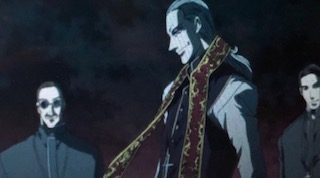
The third episode of Hellsing Ultimate introduces Enrico Maxwell, a scheming bishop (later archbishop) hell-bent on exterminating Hellsing. In one scene, Maxwell interrogates a priest who lived through World War II, accusing him of aiding Nazis in exchange for being turned into a vampire. He specifically names the ratlines that led to Argentina.
It is important to remember that, regardless of religion, it was usually one’s ethnicity or political loyalties that determined a person’s actions during the War. And since the Catholic Church is spread over many countries and nationalities, it is not surprising that there were as many people who supported the Nazis as there were who fought them.
The Catholic Church’s involvement in the Second World War was and remains a thorny issue. Officially, the Church maintained neutrality (partly to safeguard the Catholics in Germany); behind the scenes, however, was chaos. Many Church figures acted against the Nazis, denouncing their policies in Sunday sermons and hiding both baptized and unbaptized Jews. The Vatican’s neutral zone proved instrumental for smuggling both Allied troops and Jews to safety.
Others, however, tried to negotiate peace between the Church and the Nazis in order to stop the spread of Socialism. Alois Hudal went one step further, praising Nazi policies in his book The Foundations of National Socialism and caring for Nazi POWs. He was influential in helping to set up the ratlines, which were escape routes used by Nazis to flee from Europe. Argentina was only one of several different countries in South America that became Nazi “hot spots”. Hudal was later found out and banned from Rome, living the rest of his days outside the city.
The Papal Army and Iscariot Organization
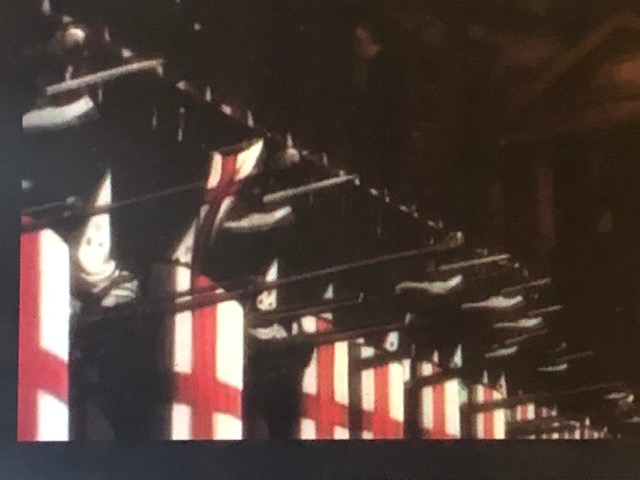
Hellsing Ultimate’s Papal Army is composed of several religious orders. Four are based on actual orders that existed in medieval times, the exception being the Brotherhood of the Cruciform Sword (from the Indiana Jones franchise). Hellsing’s Knights also look less like priests and more like Klu Klux Klan members with their white outfits and pointed hats. This is highly ironic, as the Klu Klux Klan is anti-Catholic.
The Iscariot Organization, the Vatican’s secret organization and rival to the Hellsings, is also partly based on an actual group. There are unconfirmed rumours that the Vatican at one time had a secret intelligence service, called alternately the Entity and the Holy Alliance. The Paladins, led by Anderson, might be based off the Society of Jesus (Jesuits). The Iscariots share similarities with the Jesuits: they are fearless, willing to risk death to carry out their mission. They are zealous for the Catholic Faith, citing Scripture while hacking at ghouls and vampires. They are especially vehement about protecting the Church from heathens and nonbelievers – which includes Hellsing, since both Maxwell and Anderson see the organization and the monsters it is fighting as one and the same.
Things have changed, however, since the 16th century. In the spirit of Ecumenism, both Protestants and Catholics are trying to sort out their differences and heal the divide. Ever since the Second Vatican Council (1962-65), there has been more dialogue between Catholics and Protestant. Marriages between Catholics and Protestants are now allowed, and priests from both churches can now come together and celebrate liturgy. The Pontifical Council for Promoting Christian Unity was also established during Vatican II, with separate commissions for Muslims and Jews, aimed at inter religious dialogue with other faith communities.
Relations between real-world Catholics and Protestants may be warmer now than the uneasy truce between the Iscariots and Hellsings at the end of Hellsing Ultimate, but there still is a ways to go. And with new generations untouched by Catholic/Protestant prejudice or violence, it will only get easier.
Works Cited
Kiprop, Victor. “Religion Demographics of Northern Ireland.” WorldAtlas, Apr. 16, 2019, worldatlas.com/articles/religion-demographics-of-northern-ireland.html.
McIlvenna, Una. “What Inspired Queen ‘Bloody’ Mary’s Gruesome Nickname?” History, Oct. 25, 2018, https://www.history.com/news/queen-mary-i-bloody-mary-reformation.
Wikipedia contributors. “Alois Hudal.” Wikipedia, The Free Encyclopedia. Wikipedia, The Free Encyclopedia, 15 Nov. 2019. https://en.wikipedia.org/wiki/Alois_Hudal.
Wikipedia contributors. “Acts of Supremacy.” Wikipedia, The Free Encyclopedia. Wikipedia, The Free Encyclopedia, 3 Nov. 2019. https://en.wikipedia.org/wiki/Acts_of_Supremacy.
Wikipedia contributors. “Popish Recusants Act 1605.” Wikipedia, The Free Encyclopedia. Wikipedia, The Free Encyclopedia, 25 Apr. 2019. https://en.wikipedia.org/wiki/Popish_Recusants_Act_1605.
Wikipedia contributors. “Charles I of England.” Wikipedia, The Free Encyclopedia. Wikipedia, The Free Encyclopedia, 4 Nov. 2019. https://en.wikipedia.org/wiki/Charles_I_of_England.
“Cromwell in Ireland”. The Cromwell Association, http://www.olivercromwell.org/wordpress/?page_id=1837
“Northern Ireland: A brief background to the conflict”. Passage, https://passage-new.cappelendamm.no/c453153/artikkel/vis.html?tid=498532
“Iscariot (Section XIII)”. Hellsing Wiki, https://hellsing.fandom.com/wiki/Iscariot_(Vatican_Section_XIII)
“Papal Knights”. Hellsing Wiki, https://hellsing.fandom.com/wiki/Papal_Knights
What do you think? Leave a comment.




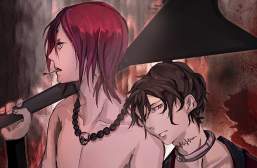




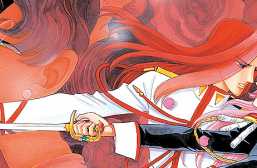

I still think hellsing is better than hellsing ultimate
Hellsing definitely should’ve explained somethings more. I wanted more of a back story on the captain and also have more development for seras and pip Bernadotte. And it would have been great to see more of Walter
This series is like something out of Guillermo Del Toro. It has the tropes, the dark themes, and the creator even looks like a Japanese Guillermo Del Toro. If Del Toro himself actually decided to make a movie out of this, I would be all for it.
Great analysis. When I talk about my top five favorite anime to people, its the fourth slot that changes as I find new anime and re-evaluate older ones, the fifth slot is honorarily held by Hellsing Ultimate, because even though it isn’t the best anime out there it is by far the one I enjoyed to most.
Religion hasn’t always been the most sensible of ogranisations.
we need more anime shows like one punch man, hellsing and space dandy. im sick of this recycled and bland new anime right now.
Dont forget that this is an anime where there are genderless cat children. never forget that.
Have you seen Drifters? It definitely lacks the impact and quality of Hellsing, but it was a weekly, the premise is the coolest ‘trapped in another world’ scenarios I’ve ever seen, and I love how distinct Hirano’s art style is.
I love this anime they need to make more like this really brings you back to the 80s anime that got everybody in to anime. Uncensored blood uncensored violence and sexuality that what makes a good anime, well that and good storyline.
Hellsing Ultimate (and the manga) is a short but mature series. Personally I only watch anime for the more mature topics since I believe it is capable of bringing a unique medium for storytelling (as with games). If you enjoyed the OVA, the manga (comic) will hook you even more with great ink work and style.
I think I watched the first episode of the original(?) Hellsing series and I found the police girl character really irritating and fanservicey, is that toned down at all in Ultimate? Or did I get the wrong impression from that first episode?
There’s a bit more fan service in Ultimate, unfortunately. Seras could sound irritating, but in the original she at least wasn’t in as many awkward situations as in Ultimate (not many, but still noticeable and a bit out of place in such a serious anime).
Kouta Hirano, before he wrote Hellsing, was primarily a hentai doujinshi writer. All of his characters were prototyped in such Hentai, which is what influenced the fanservice-y nature of Hellsing.
That said, the only problem I have with your whole review is that…
Firstly, you clearly didn’t do much research into the Capirote, a pointed conical hat in the catholic brotherhood. It was co-opted by the KKK, but is a historically catholic garb.
And.
The antagonistic relationship between Catholics and Protestants in Hellsing is clearly exaggerated, but if you do a little research, there are still some people who are heinously aggressive with the other religion. And what’s more, this kind of inter-faith aggression translates between denominations rather fluently.
All versions of Christian faith believe themselves to be ‘the one true faith’. Which creates a LOT of in-fighting between denominations, and gave rise to the term “You don’t talk politics in polite company”.
If I recall the original series enough, she was toned down a bit for Ultimate. She starts a little bit on the lighter side, but by the half-way point, she’s tearing heads like the rest.
For existing fans of the series, I cannot recommend Takahata101 and Team Four Star’s Hellsing Ultimate: Abridged enough. It’s a humorous re-dub by a very talented group of fans who really breathe new, comedic life into the story. check it out if you haven’t already.
Hellsing TV & Hellsing Ultimate are great in their own personal way (but i fucking LOVE AND FAVOR Ultimate), but i felt like if Ultimate took some things from the TV, it’d be more iconic and rememberable (not saying that its not).
Should I watch Hellsing first or I could just start off with the Ultimate? Is it something Fullmetal alchemist and Fullmetal alchemist brotherhood?
If you want a sense of the violence and just want to start off with shorter episodes (20 minutes for Hellsing, 40-50 for Ultimate), I recommend the original. Also, the first few episodes of Ultimate are actually the first 6 episodes of Hellsing mashed together. To understand the stories better, watch the original. (There is far more language and disturbing content in the original series, to be quite honest. Especially in the dub.)
Ultimate and the original Hellsing have two completely different stories but still have the same characters, you could watch them both in any order you want.
It has to be mentioned that Ultimate is full of exaggerate drama for no reason, like little girls watching their dead mothers getting raped. I also recommend the early 2000s Hellsing. It isn’t full of action and doesn’t have cool villans like Ultimate, but the animation is darker and western-like, has a classy anime feeling and it is not as bloody and dramatic. I prefer that one over Ultimate.
The German version of Hellsing Ova has the german voiceactor for brandon fraser here in germany and his laughter is unmatched even in any other version trust me just watch a short video of him laughing.
I’ve never been a huge fan of anime (but liking it more in recent years), but I’ve always loved Hellsing.
I love the abridged version better.
What would happen if Alucard from Hellsing would go to the twilight universe and bump into Edward and Bella
It is honestly one of the greatest anime ever made best vampire anything, this to me is the pinnacle of vampires , I put this on a pedestal compared to anything live action or animated I have ever seen when it comes to vampires , alucard is the most legit vampire I’ve ever had the pleasure of witnessing and I’m very happy to own this series along with the original which isn’t nearly as good but It does at the very least have something more to add to the table cuz after seeing ultimate u want moree
Very astute analysis. Hellsing Ultimate seems to apply an interesting twist as to the concept of separation of church and state.
I learned so much!
Hey, I think I suggested a topic of a similar nature, and I’m so happy to see someone wrote on it! I like how you tie in the Irish/English connection when it comes to the religious frictions, as the English Protestants versus the Irish Protestant (Anderson) is a very stark conflict with ties to British imperialism and the fraught Christian schism.
This article is actually from your topic suggestion: https://the-artifice.com/the-religious-politics-of-hellsing-ultimate/
Not sure why it doesn’t state this on the credit area. We will look into this straight away.
Ah, I thought so! It’s a great article. 🙂
Oops. I’m sorry. I didn’t know I was supposed to credit topic suggestions.
I love dark anime with some plot twists so Hellsing Ultimate is a no brainer!
This reads as a bit scant especially concerning the nazi-connection to the church.
You missed something about the Iscariot army.
It is not fashioned after the KKK at all.
The look is based on the spanish capirote:
https://en.wikipedia.org/wiki/Capirote
[ Which the KKK also adopted. ]